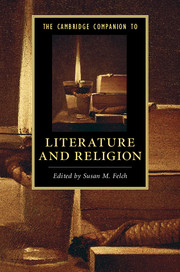1 - Theological Reading
from PART I - READING PRACTICES
Published online by Cambridge University Press: 05 September 2016
Summary
Discussion about the relation of theology to the creative imagination has blossomed in recent decades within English-speaking scholarship. Journals such as Literature and Theology in the United Kingdom and Christianity and Literature, the Notre Dame Journal of Religion and Literature, and Image (which includes the visual arts) in the United States have developed as platforms for serious and broadly ranging debate not only over religious themes in various kinds of imaginative work but also around the nature of the imaginative process itself. Research projects drawing together literary and intellectual history have welcomed the contribution of theologians and historians of theology; monographs on the religious hinterland of particular writers, monograph series on the interaction between the two realms, university departments, and chairs (from Chicago and Virginia and Baylor to Glasgow and London and Chester) concentrating on these frontiers all seem to be flourishing. Paradoxically, in a period when public religious affiliation is far from strong in Western Europe and not as strong as it used to be in North America, there is no shortage of interest in the ways in which religious categories appear as vehicles for serious imaginative exploration.
Apart from the high profile of religious – and specifically Christian – themes in the fiction of Marilynne Robinson or the poetry of Geoffrey Hill, several new plays produced in London since 2006 have very deliberately set out to reflect on religious faith and language. In what follows, I shall be looking at three examples. The first is David Edgar's Written on the Heart, a high-profile production in 2011 by the Royal Shakespeare Company that deals with the interactions of political power and spiritual integrity around the final revisions to the text of the Bible of 1611, contrasting the tormented conscience of the saintly but consumingly ambitious Lancelot Andrewes with the ghostly presence of William Tyndale, martyr and critic of the hierarchy. In 2006, Mick Gordon and A.C. Grayling collaborated on a play entitled simply On Religion, which looked at the tensions within a “secular” family set up by one character's conversion to Christianity, priestly vocation, and untimely death. And in 2011, Alexi Kaye Campbell's The Faith Machine presented, within a complex network of relationships, questions both about capitalism and personal ethics and about the tension within the Church between principle and pragmatism.
- Type
- Chapter
- Information
- The Cambridge Companion to Literature and Religion , pp. 21 - 34Publisher: Cambridge University PressPrint publication year: 2016



